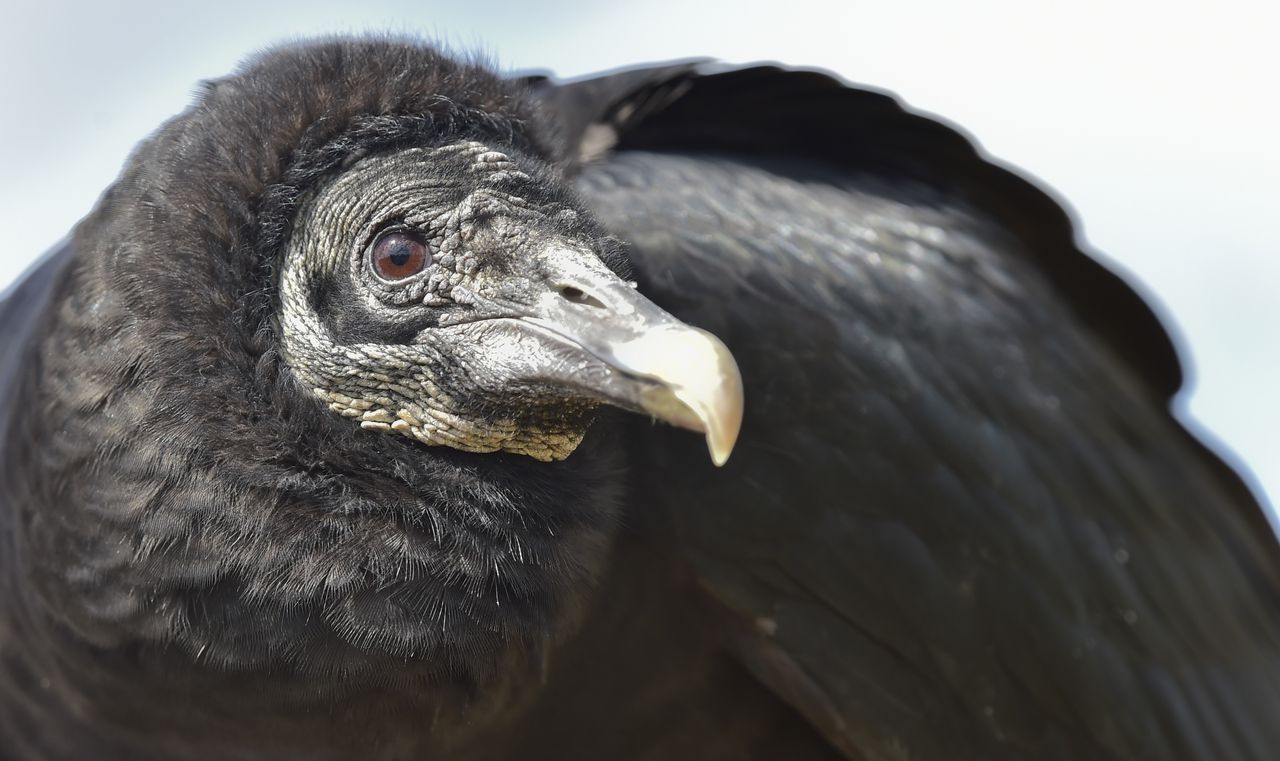Alabama issuing permits to kill vultures to protect livestock
The Alabama Department of Agriculture & Industries is permitting livestock producers to kill up to three black vultures this year to prevent the birds from attacking newborn calves and weak animals.
Alabama and other states have received federal approval to kill limited numbers of the vultures, who are protected under federal law as migratory birds.
Deputy Agriculture Commissioner Patrick Moody said cattle producers in Alabama urged the state to join the black vulture livestock protection program the U.S. Fish and Wildlife Service started in 2021.
“It’s becoming a mostly national problem but predominantly along the Mississippi River Valley, up and down through that area,” Moody said. “In Alabama, it’s really become an issue more the last couple of years.”
Erin Beasley, executive vice president of the Alabama Cattleman’s Association, said the problem is spreading.
“Black vultures have been giving cattlemen problems for quite some time, particularly in north Alabama,” Beasley said. “However, they are migrating further south. There are a lot of them because they are protected under the Migratory Bird Treaty Act. They are a predator to livestock in that they attack calves when they are born.”
The Alabama Department of Agriculture & Industries (ADAI) received a permit from U.S. Fish and Wildlife to issue sub-permits to livestock producers to kill vultures, with restrictions. ADAI’S federal permit allows up to 500 vultures to be killed statewide this year. Each farmer can kill as many as three until that state limit is reached. They must use shotguns.
Moody said the agency has issued 14 sub-permits. Farmers who receive sub-permits are required to report vulture kills within 48 hours.
So far, no kills have been reported. Moody said that is probably a matter of timing since the program started in April.
“Aa lot of our producers try to line up their breeding cycles so they’ve got calving season going on in the fall and early spring,” Moody said. “So the middle of the summer there’s not going to be as many births going on.”
“I anticipate that more people will get permits and we might start seeing the takes get reported in the fall,” Moody said. “The birds migrating south and the calving season just kind of coincides with each other down here.”
The sub-permits cover black vultures, not turkey vultures, which are also common in Alabama and are distinguishable by their red heads. Black vultures weigh about 4.4 pounds and have a wingspan of about 59 inches.
“These black vultures are for whatever reason a more aggressive bird,” Moody said. “And the biggest problem seems to be during calving. They’ll attack the young calves and the mothers going through the birthing process. And if you have a weak or injured animal, they’ll go ahead and start attacking them.
“A lot of times the animal is wounded so bad that it has to be euthanized. So whether the birds kill the animal or whether it has to be euthanized due to an injury, either way you’ve got livestock being preyed on by these black vultures.”
The problem is getting some attention in Congress. U.S. Reps. John Rose, R-Tennessee, and Darren Soto, D-Florida, are sponsoring the Black Vulture Relief Act of 2023. It would allow livestock producers to kill the birds without a permit if they believe they will kill or injure their livestock.
The Fish and Wildlife Service has rules and guidelines for the black vulture permits. Killing the birds cannot be the main way to control them. Vultures who are killed must be used as effigies to try to scare away others. Farmers can hang the carcass in a place visible to other vultures. They can also use artificial effigies.
Vultures are intelligent and respond quickly when one or two members of a flock are killed, according to a report on Outdoor Alabama, which describes other non-lethal ways to try to get rid of the birds.
Moody said vultures are not a problem everywhere.
“It’s hard to pinpoint what counties have a major problem and which ones don’t,” he said. “We’ve talked to some cattle producers who say, ‘It’s never been an issue for us in this county.’ But my understanding is it’s real bad up in the Tennessee Valley area. And we’ve had a lot of Wiregrass farmers talk about it being a problem.”
Moody said Agriculture Commissioner Rick Pate, who is a cattle farmer, encourages those who have a problem to consider applying for a sub-permit. The process is free.
“If it’s something that can help a producer, please go to our website and get a permit,” Moody said. “This is our first year, so we’ll see how many permits we have and how many takes we have and reevaluate everything with U.S. Fish and Wildlife next year to see if they change anything in our program or if they keep it the way it is now.”
